Touring Sembawang waterfront landed houses and 9 landed living costs to note


Last week, I headed over to explore the waterfront landed homes at Pasir Ris. In short, I concluded that they are close to nature, have a beautiful waterfront but are a tad crowded (at least the nearby beach and park are, even at 7am on a weekday).
And so whilst I was extremely tempted by the prospect of living there, I was slightly concerned by the age of the majority of the homes (as the ones closer to the water are well into their 99-year leases) as well as the potential noise pollution when chalet holidays resume.
I decided I should explore other waterside landed homes before deciding whether or not to shortlist Pasir Ris in my search for a multi-generational home so, this week, I drove over to Sembawang Park for another tour.
As I had mentioned in a previous article, Canberra is far. Sembawang, even further.
It took me around 40 minutes — and over 10 per cent of my iPhone battery life using Google Maps to reach Sembawang from central Singapore at 7am on a weekday (i.e. before peak hour travel).
I drove for so long that I wondered if I could get car sick from my own driving! Once I reached Sembawang Park, however, I fell in love with the area. It felt like you had travelled back in time to old Singapore, to a time where being packed together like sardines wasn't a commonplace situation.
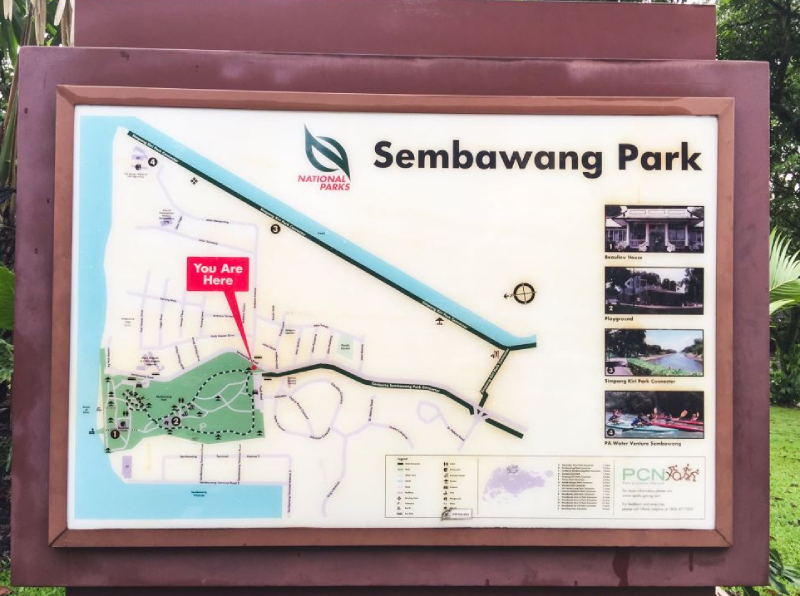
Whilst there were a few people enjoying Sembawang Park and the beach — I spotted an elderly couple doing tai chi and one or two people fishing on the beach. The overwhelming feeling is of peace and serenity.
Yes, those words are often used in property ads but, this time, they are actually true. The loudest noise I could hear was the chirping of the birds (note: there are no crowing roosters here, unlike Pasir Ris!), and not the cacophony of humans screaming and shouting away.

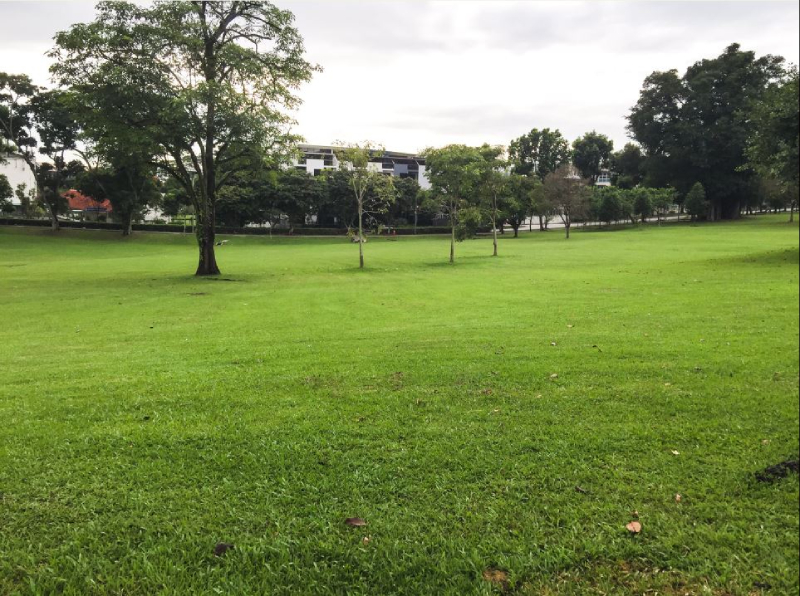


Despite the fact that Sembawang Shipyard is currently next to Sembawang Park (and the landed enclave), there was hardly any noise. It is much more peaceful, and much more beautiful than West Coast Park.
(Moreover, Sembawang Shipyard will be moving to Tuas by 2024 , so hurrah for the residents of the area! According to the URA site, the Sembawang Shipyard site "has the potential to be redeveloped into a mixed-use waterfront lifestyle precinct while taking into consideration its rich maritime history" which certainly sounds very exciting.)
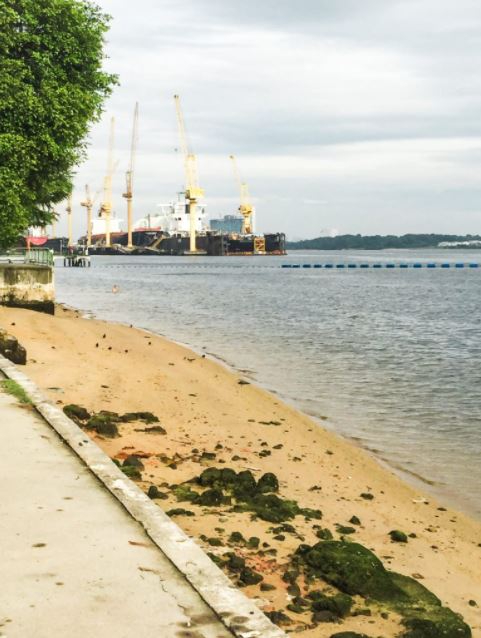
I felt so relaxed and refreshed that it honestly seemed like I was on holiday, a feeling I've missed these last two years. In fact, we're planning to come back again next week!
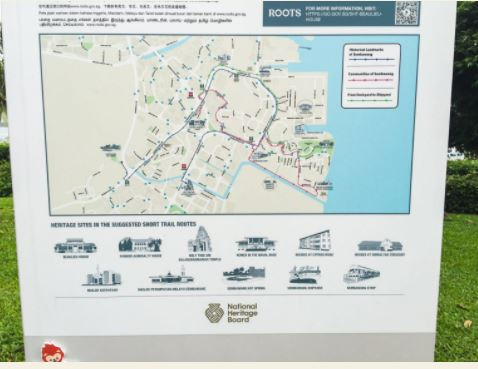
Some notes about the waterfront landed estate in Sembawang:
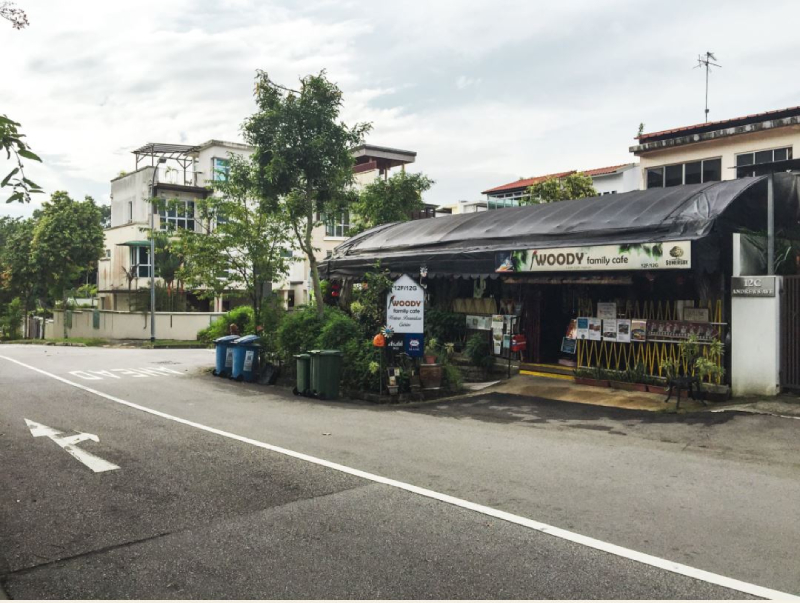
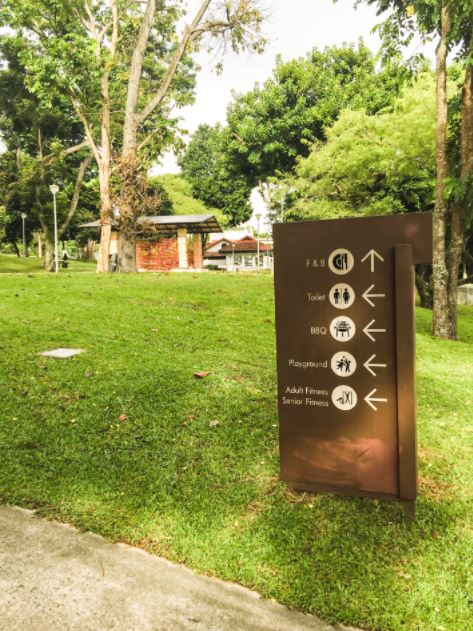

At the time of writing, there were a number of houses, some in move-in condition and others not, for sale $3 million and under in this area, which you will be able to find on 99.co and srx.com.sg.
I won't list them all out here but of note is a freehold bungalow at $2.8 million, which is rather the rarity in today's market (do note that it would probably require rebuilding, and construction costs have been increasing due to Covid.) If you have a smaller budget, there's also a freehold inter-terrace at $2.6 million.
I'm particularly interested in Watercove, a freehold cluster home that actually fronts the sea! (Unfortunately, the one unit currently for sale is non sea-facing.) I'd love to do a review of the entire development one day.
Before I end this article, I thought it might be helpful to give an overview of the maintenance costs associated with living in a landed house. First things first, living in a GCB is obviously very different from living in a terrace house and the costs will thus vary accordingly.
Since my series revolves around affordable waterfront housing, I'll be focusing on terrace houses and semi-Ds only. This Singsaver article has a table of the maintenance costs of the different types of landed houses.
However, according to my research, the article seems to have grossly underestimated some figures, especially those for bungalows and GCBs.
The main costs you can expect for smaller houses such as terraces and semi-Ds include, amongst other things:
Everyone I have spoken to who lives in a landed house (be it a GCB or inter-terrace), bar one, has had roofing issues at some time or another.
(The one person who did not have roofing issues had an in-house contractor who came in every month to clean and upkeep the roof, which is probably not something every house owner will be able to do!)
This could range from anything between five to 20 years (please check with a roofing specialist as it would really change on a case-by-case basis) and you will need to either do some roof maintenance or a complete roof replacement, which is not a cheap undertaking.
Do not skimp on this as that would literally be penny wise, pound foolish: your roof could collapse on you, especially if it's been raining very heavily!
Every few years, your house will need a lick of paint to keep it looking nice and clean. How often you choose to do so will depend on how houseproud you are. Do keep in mind that living by the sea is particularly bad for buildings and a special type of paint is needed for waterfront properties.
Some people I know actually save money by paying their helpers to paint their houses for them instead of hiring contractors! (You could also try doing it yourself, if you're an avid DIY-er.) This could prove to be more expensive in the long run, if your helper isn't the capable sort, so proceed with caution.
You may or may not require a gardener, depending on a few factors:
The cost varies greatly: One friend does everything himself, another pays someone $50 per visit (the person is not a trained gardener!) whilst yet another pays a specialist $200 per week (and has him come in every week).
Note: you may be shocked to hear that cutting down a tree in your own garden can be deemed a crime in Singapore (i.e. you will be fined) if the tree in question is a heritage tree, or if you live within one of two heritage areas in Singapore (Tanglin-Bukit Timah-Pasir Panjang and Changi)! So do proceed with caution!
Pest control is like gardening, You may or may not want to pay for it but, if I were you, I would.
All the people I know who skimped on this ended up with either rat infestations (it was no joke we caught over 20 of them!) or termites. (If you have a large garden with numerous plants, you may also want to have a mosquito fogging contract.)
Landed houses are usually larger than flats so many families find that they can't manage 1 without a helper.
In 2016, refuse collection from landed houses cost about $25 — this is more than three times the fee for apartments (which can opt-out of the scheme). Moreover, it is customary to give the workers a cash gift during the festive season, such as Christmas or Chinese New Year.
If your fence is metal (that is not rust-proof) and not red brick, it may corrode and require replacing. For gates, you have the choice of manual vs electric — the latter is prone to breaking down and can be a pain FYI.
In addition, seawater is terrible for metal and appliances (even the ones inside your house) so you may need to replace things more quickly than normal if you live here.
Some people choose to install Chubb systems and cameras for security.
If your house has a pool, it would need weekly or bi-weekly cleaning. You could hire a professional or buy the chlorine and try to do this yourself: the person I know who attempted DIY, came down for a swim one day and found that the pool had turned green (algae). Calculating the optimal amount of chlorine to use is an art, it seems!
Note: I've heard from people that having a pool makes it easier to rent out a landed house (the rental yield isn't terrific for landed properties in general).
As you can see, when you have a landed property, the maintenance can be very flexible, so the maintenance costs can vary widely from house to house. This is unlike a condo, where your MCST fees are fixed.
Depending on how you choose to live (and how much your condo maintenance is), you could potentially save quite a bit on maintenance by moving from a condo to a landed property.
So if you're thinking of moving from a flat to a landed house, I hope this has helped give you a better idea of the costs incurred when living in a landed home. Next week — waterfront housing at Jalan Loyang Besar!
READ ALSO: Around Pasir Ris: Landed houses by the beach under $2.9 million
This article was first published in Stackedhomes.